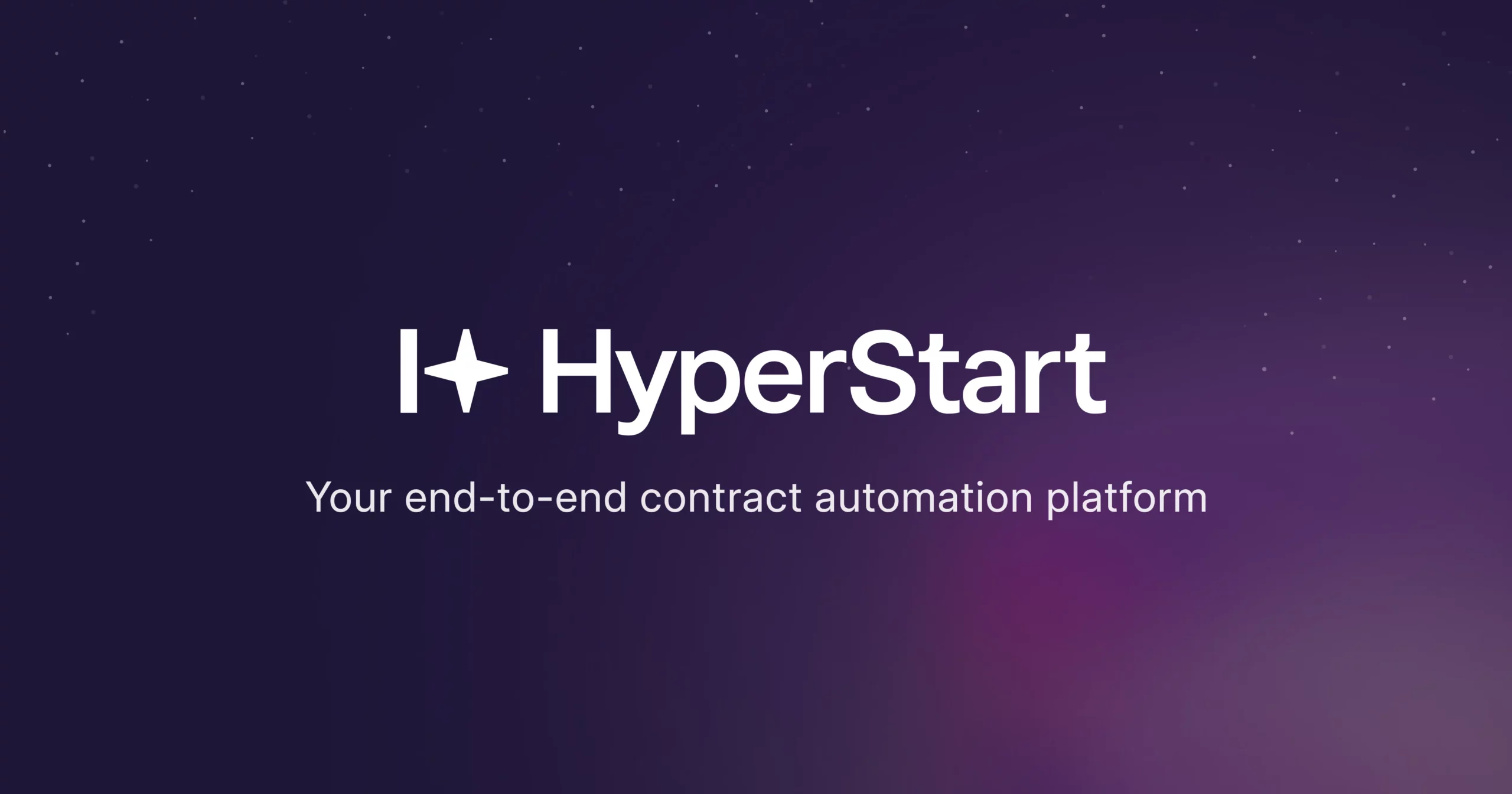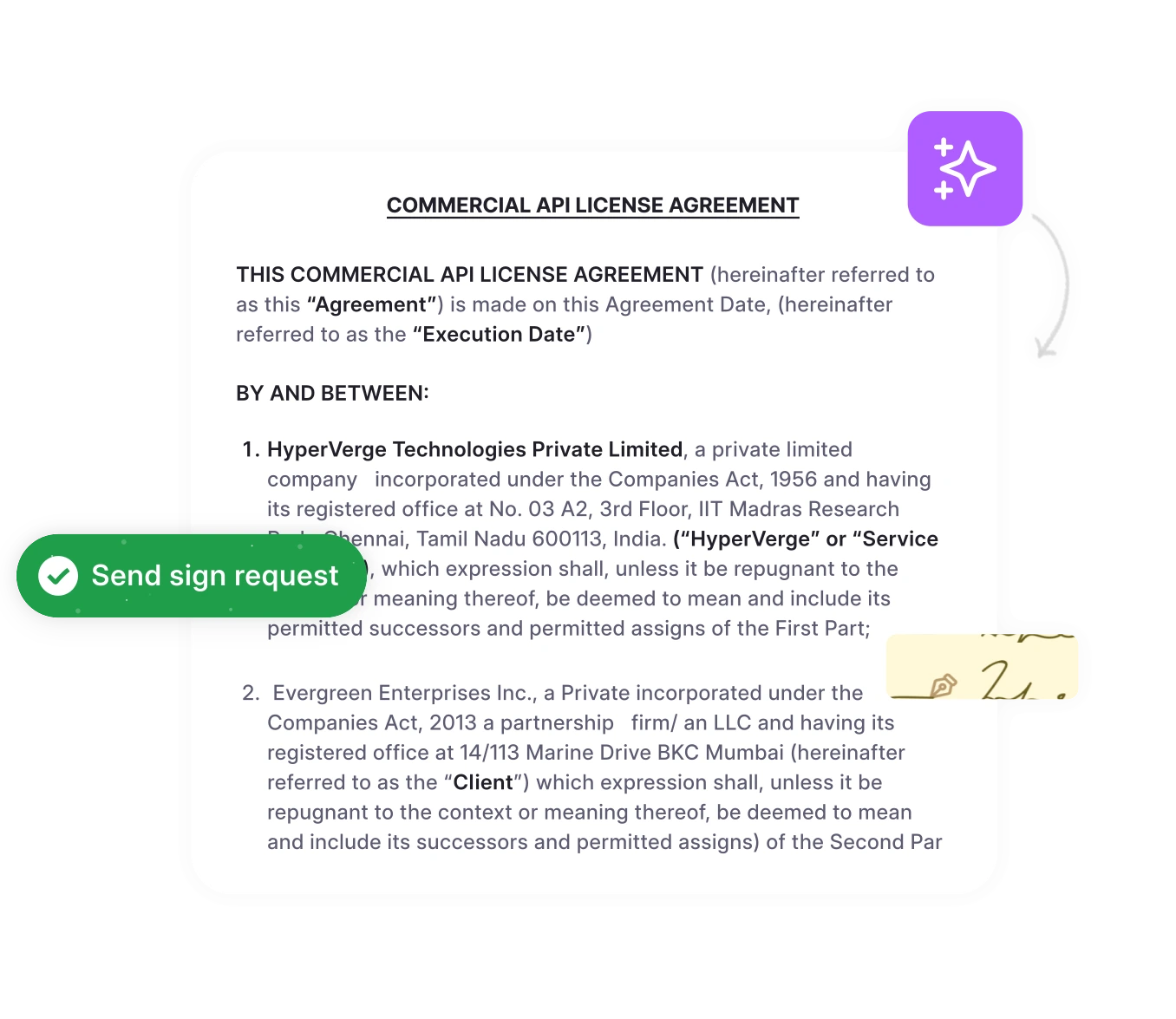Freight contract management directly impacts logistics costs and carrier relationships. Organizations manage carrier agreements across multiple modes, yet without centralized oversight, this complexity becomes costly, resulting in unexpected surcharges, missed savings opportunities, and reactive decisions that keep teams constantly on edge.
Effective freight contract management processes change this story. Organizations with systematic contract management processes reduce freight disputes by 35% and achieve 12-18% cost savings annually, according to the Canadian International Freight Forwarders Association.
The real difference? Working smarter, not harder—implementing systems that offer clarity, control, and actionable insights.
In this blog, we’ll explore various types of freight contracts, address common challenges, and demonstrate how logistics teams use automation and structured workflows to transform contracts from operational headaches into competitive advantages.
What are the main types of freight and shipping contracts?
Contract selection depends on shipping volume, geographic scope, and operational requirements.
According to CIFFA’s Best Practice Guide on Contract Management, organizations typically manage 3-5 primary contract types simultaneously, with carrier agreements representing 60-70% of total freight spend.
Here is a detailed table with the most common ones, who uses them, and where they fit best.
| Type of Contract | Description | Use Case |
| Carrier Agreements | Contracts between shippers and transportation carriers (like trucking companies or shipping lines) outline rates, routes, and service levels. | A consumer goods manufacturer contracts with regional LTL carriers for weekly distribution center deliveries, securing volume discounts and guaranteed capacity during peak seasons. |
| 3PL/4PL Contracts | Agreements with third-party logistics (3PL) or fourth-party logistics (4PL) providers who manage warehousing, transportation, or entire supply chain operations. | A consumer electronics company partners with a 4PL provider to manage end-to-end logistics across North American markets, reducing internal operational overhead by 40%. |
| Brokerage Contracts | Contracts with freight brokers who connect shippers with carriers, negotiating rates and terms. | A small business utilizes a freight broker to locate a carrier for a one-time shipment of oversized equipment, thereby saving time on carrier sourcing. |
| International Freight Contracts | Contracts for cross-border shipments include terms like Incoterms, customs requirements, and compliance with international trade regulations. | An importer contracts with a freight forwarder to ship electronics from China, ensuring compliance with customs and timely deliveries. |
| Spot Rate Contracts | Short-term agreements for one-off shipments at current market rates, ideal for urgent or irregular needs. | A company needs to ship an urgent order of perishable goods and agrees to a spot rate with a carrier for immediate transport. |
| Multimodal/Intermodal Contracts | Contracts covering shipments that utilize multiple transportation modes (e.g., truck-to-rail or ship-to-truck) are coordinated under a single agreement. | A retailer ships goods from China to the US, using ocean freight to a port and rail to the final destination, all managed under a single contract. |
If you’re managing freight contracts across these types, you need to keep tabs on service quality, rates, renewal dates, and contract terms—sometimes across borders and in multiple currencies.
Understanding the various types of freight and shipping contracts is crucial for smooth logistics. However, managing these contracts presents its own set of challenges that require innovative strategies to overcome.
What are the key challenges in freight contract management (and how to solve them)
Managing freight contracts involves more than just paperwork. Logistics teams face constant changes that lead to costly errors and delays. Here is a list of 4 common challenges and ways to overcome them.
1. Fragmented systems and manual workflows
Challenge:
Organizations frequently manage freight contracts across disparate systems—email repositories, local spreadsheets, and departmental file shares. This fragmentation creates version control issues, compliance gaps, and audit trail concerns.
Research from Cargo Five indicates manual rate management extends quoting processes by up to three days and consumes 43% of sales executives’ productive time. Additionally, manual invoice processing contributes to a 15% error rate in carrier billing, directly impacting cost accuracy and supplier relationships.
Solution:
Centralized contract management platforms eliminate information silos by providing single-source-of-truth access to all freight agreements. HyperStart’s unified repository ensures version control, maintains complete audit trails, and enables quick contract retrieval across teams.
2. Missed deadlines and rate expirations
Organizations miss 23% of contract renewal deadlines when relying on manual tracking systems, resulting in automatic rollovers at unfavorable rates.
Challenge:
Freight rates and accessorial contracts aren’t set in stone forever. Carrier agreements might look stable, but let a rate expire, and you could be paying way more—sometimes much more—than you bargained for. Miss a renewal window, and your leverage in contract negotiations just disappears.
Solution:
Automated reminders and renewal tracking become your safety net. A smart contract management solution keeps track of every deadline, flagging upcoming expirations before they become costly problems.
Now, you can renegotiate rates with confidence and avoid those last-minute surprises that eat into your cost savings.
3. SLA compliance and delivery issues
Challenge:
It’s one thing to sign a service level agreement—it’s another thing entirely to track whether your partners are meeting those standards.
Are you measuring carrier performance, on-time deliveries, and damage rates? Without good data, you’re left guessing (and possibly putting service quality at risk).
Solution:
With HyperStart, you get real-time visibility into contract obligations and SLA compliance. Dashboards display key performance indicators at a glance, so if a carrier starts missing the mark, you can spot it quickly and take action before customer satisfaction is affected.
4. Freight overcharges and billing disputes
Most disputes aren’t about customers avoiding payment—they stem from miscommunication and unclear expectations. Common triggers include ambiguous service descriptions, unexpected charges, poor project communication, and inadequate documentation.
Challenge:
Unexpected freight charges, duplicate invoices, and billing disputes—sound familiar? Manual review eats up hours, and human error can cost serious money, especially when you’re juggling multiple carriers or complex freight forwarder deals.
Solution:
Centralizing contracts and using advanced analytics helps flag discrepancies fast. Platforms like HyperStart automatically compare contracted rates against invoices, highlight outliers, and let you resolve issues before they snowball.
5. Lack of contract visibility across departments
Challenge:
Contracts aren’t just a logistics problem. Legal, procurement, finance, and operations all need visibility—yet information silos slow everything down. Someone misses a clause, or the latest contract version doesn’t get shared, and suddenly, you’re facing compliance risks or operational delays.
Solution:
With a digital contract management solution, access can be tailored by role. Everyone gets what they need (and only what they need), right when they need it.
No more version confusion, missed obligations, or chasing down someone for “the latest PDF.” It’s just smoother, smarter supply chain operations.
A Purchaser awarded a vehicle procurement contract for US$450,000 based on CIP Incoterms. Since shipping documents were received before the goods arrived, the supplier fulfilled their obligations. But, clearance delays at the port resulted in US$130,000 in demurrage charges, which were determined ineligible for bank financing.
Takeaway: Assess capacity and logistics in advance to inform contracting strategy.
For instance: If no appropriate storage facility, build capacities for it before you sign the deal with suppliers.
Accelerate freight deal reviews
Use HyperStart to surface negotiation bottlenecks, catch freight-specific risks, and streamline contract approvals—before they slow down deliveries.
Book a DemoTackling challenges in freight contract management is important—but to keep things running smoothly over time, it’s just as important to follow proven best practices.
What are the 7 best practices for freight contract management?
Want to make freight contract management less stressful and more profitable? Small changes can add up to big results. Here are the 7 best practices for managing freight contracts effortlessly.
1. Standardize your carrier contract templates
Don’t start from scratch every time. Utilize contract templates with pre-approved fallback clauses and contractual terms for key provisions such as insurance requirements, service level agreements, and fuel surcharges. This saves negotiation time and makes compliance easier.
2. Review and renegotiate rates regularly
Freight rates can shift fast, sometimes faster than you think. Set calendar reminders to review your key contracts on a quarterly or biannual basis. Regular reviews put you in a stronger position to negotiate favorable rates and spot cost-saving opportunities before they slip away.
3. Monitor SLA performance closely
Don’t just assume your partners are hitting their targets. Track key performance indicators for on-time deliveries, damages, and customer satisfaction. Use this data to guide contract negotiations and hold carriers accountable for service quality.
4. Automate renewals and RFP lead times
Manual processes leave too much to chance. Automate renewal alerts and build in enough lead time for RFPs, so you’re never caught off guard by an expiring contract or changing market conditions.
5. Keep all freight documents in one system of record
Contracts, BOLs, rate sheets, insurance docs—they all belong in a central, digital contract repository. No more scrambling for files when an audit comes up, or chasing paperwork across departments. Easy access facilitates compliance, auditing, and swift decision-making.
6. Tie contracts to actual supply chain operations
Ensure your contract management software integrates seamlessly with your TMS, ERP, and other platforms used for day-to-day operations. This closes the loop, reduces compliance risks, and facilitates continuous improvement, as your data is always up to date.
7. Involve the right stakeholders from day one
Carrier contract management is a team sport. Get input from logistics, legal, procurement, and finance up front. That way, your contracts actually fit your operational needs and compliance requirements—no more “surprise” clauses or delays.
Protect freight agreements from legal risk
HyperStart benchmarks SLAs, liability clauses, and jurisdiction risks in freight contracts. Review contracts faster.
Book a DemoFollowing best practices is key to effective freight contract management, but putting them into action is easier with the right tools. That’s where HyperStart CLM comes in, turning best practices into everyday operations.
How HyperStart CLM enables freight contract management
Managing freight contracts takes more than shared drives and calendar reminders. HyperStart CLM delivers logistics-focused features built for legal, logistics, and marketing teams. Read Contracts Simplified at Scale at Consumer Goods Startup.
1. Centralized contract hub for freight teams
- Manages standard form freight agreements—carrier contracts, broker deals, spot‑rate arrangements, 3PL/4PL, accessorials, international freight documents—in one secure, searchable repository.
- No more hunting through email chains or local drives—everything lives in one digital home.
Bulk upload & AI‑powered clause search
- OCR-assisted import makes digitizing legacy freight contracts fast and accurate.
- Use AI-based clause detection to find terms like fuel surcharges, customs requirements, or SLAs in seconds.
Automated obligations & renewal alerts
- AI extracts metadata (e.g., renewal dates, rate expirations, service level commitments) to trigger reminders before deadlines arrive.
- Helps prevent contract rollovers, missed rate renegotiations, or neglected SLA milestones.
Real-time tracking with in‑flight analytics
- Dashboards for comprehensive contract status visibility.
- Automated alerts on contract TAT delays before they impact customer delivery commitments.
Integrated workflows and e-signature support
- Let both freight operations and legal teams collaborate using conditional approval flows, redlining, and version tracking.
- Includes built-in eSignature options and integrations with tools like DocuSign and Adobe Sign.
Seamless integration with freight tech stack
- HyperStart works with email, cloud storage, CRM, eSignature, billing systems, and more.
- This makes it possible to sync freight contract data into TMS and ERP systems, eliminating manual updates and ensuring alignment across teams.
Security, compliance & audit readiness
- ISO 27001 and SOC 2 compliant, with encrypted storage and role-based access controls.
- Full audit trails, version history, and metadata extraction support compliance with DOT, FMC, customs, and internal policies.
A consumer goods company with complex logistics operations achieved a 90% reduction in contract turnaround times and closed deals 5x faster with HyperStart, making their legal team 80% more productive while managing 2000 contracts annually across legal, logistics, and marketing teams. HyperStart (3 minutes)









